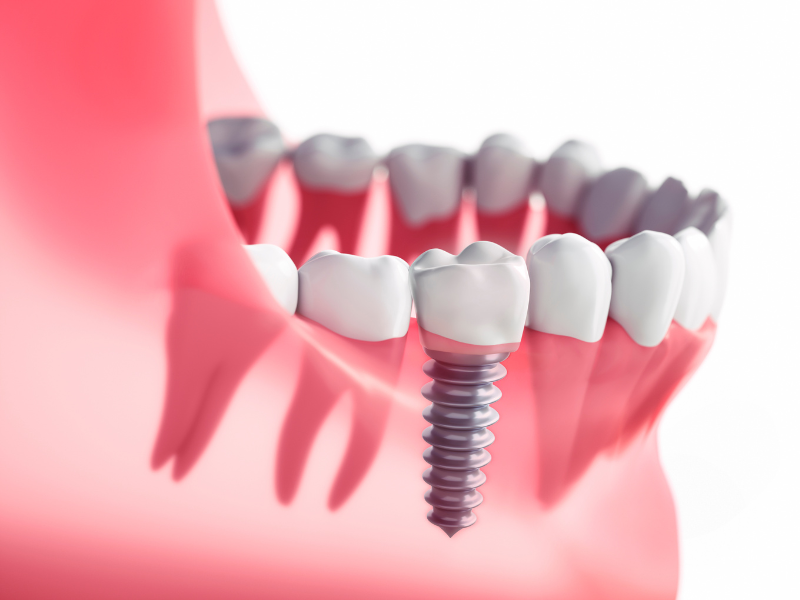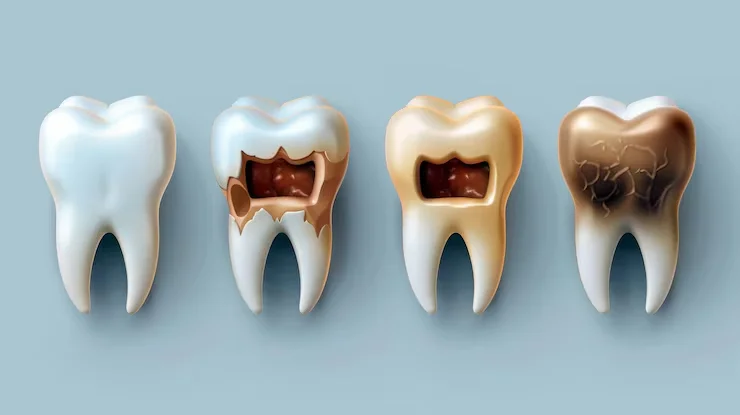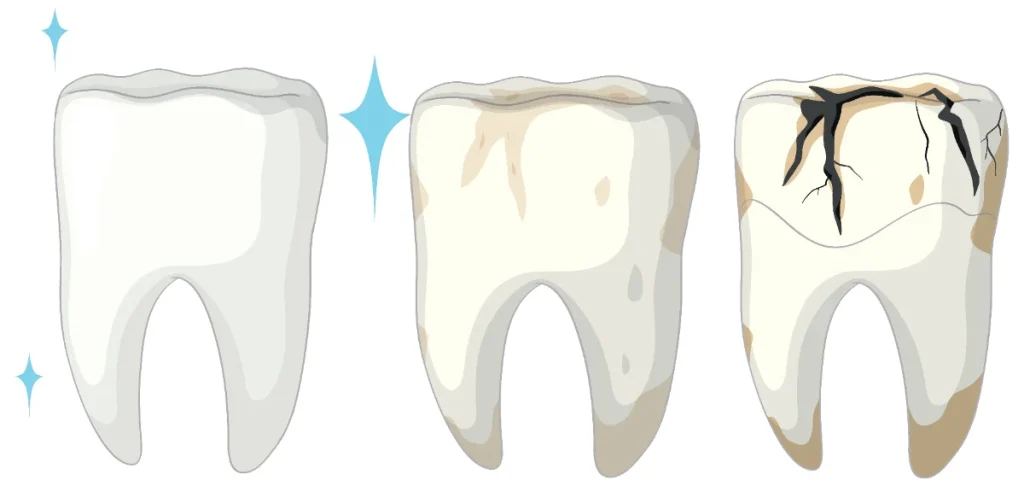Nowadays, dental implants have become a very common treatment option to replace missing teeth. They help regain the normal function of the mouth and restore your smile after tooth loss. And dental implant care is becoming a topic of concern for them.
The American Academy of Implant Dentistry reports that the number of people to have dental implants is growing to 500,000 a year. They’re an excellent solution for a lost tooth due to decay, injury, or gum disease. To keep relishing the range of benefits that implants offer, it’s important to know how to take care of your dental implants.
If you fail to maintain them, it might lead to various issues like discomfort, inflammation, bone loss, pain, and even diseases like peri-implantitis.
Read this blog to learn about the nine essential steps of dental implant care for getting a healthy, happy smile and long-lasting implants.
Dental Implant Care – How to Avoid Peri-Implantitis
Once you’ve undergone the transformative process of dental implant surgery, it’s crucial to prioritize your oral hygiene to safeguard the longevity of your implants. Neglecting your cleaning routine can lead to a pesky condition called peri-implantitis – a gum disease that affects your implants.
Similar to periodontal disease, peri-implantitis causes redness and inflammation in your gums, making them tender and prone to bleeding when brushing or flossing. Don’t let this preventable ailment hinder your smile’s radiance – make sure to maintain your oral health regimen with diligence and care.
Tips for Dental Implant Care
To keep the conditions like peri-implantitis at bay and continue enjoying the benefits of implants, ensure to make dental implant care a priority.
-
Use a soft-bristled toothbrush.

The first tip is to avoid hard-bristled toothbrushes. Not only do they cause damage to the enamel of your teeth, but also negatively impact dental implants. Toothbrushes with hard bristles scratch the surface of implants, causing irreversible damage.
For dental implant care, you can go for a soft nylon brush as they have pliable and gentle bristles that won’t cause any damage to your implants.
-
Avoid abrasive toothpaste.
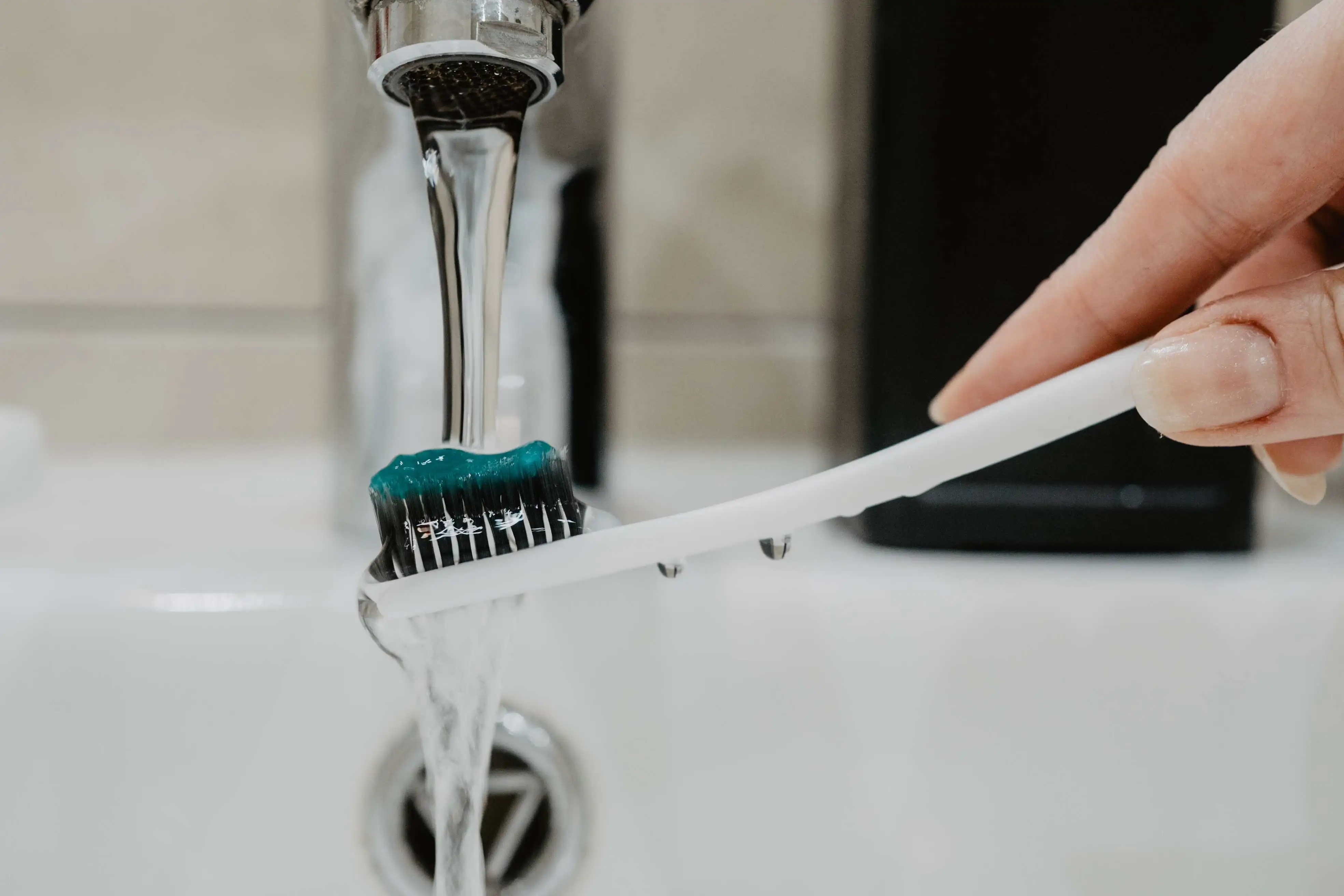
Any form of abrasion can damage your implants. Therefore, choose a specialty low-abrasive toothpaste. To remove plaque and stains, ordinary toothpaste contains highly abrasive, but too much roughness wears down the enamel and dental implants.
-
Floss daily.
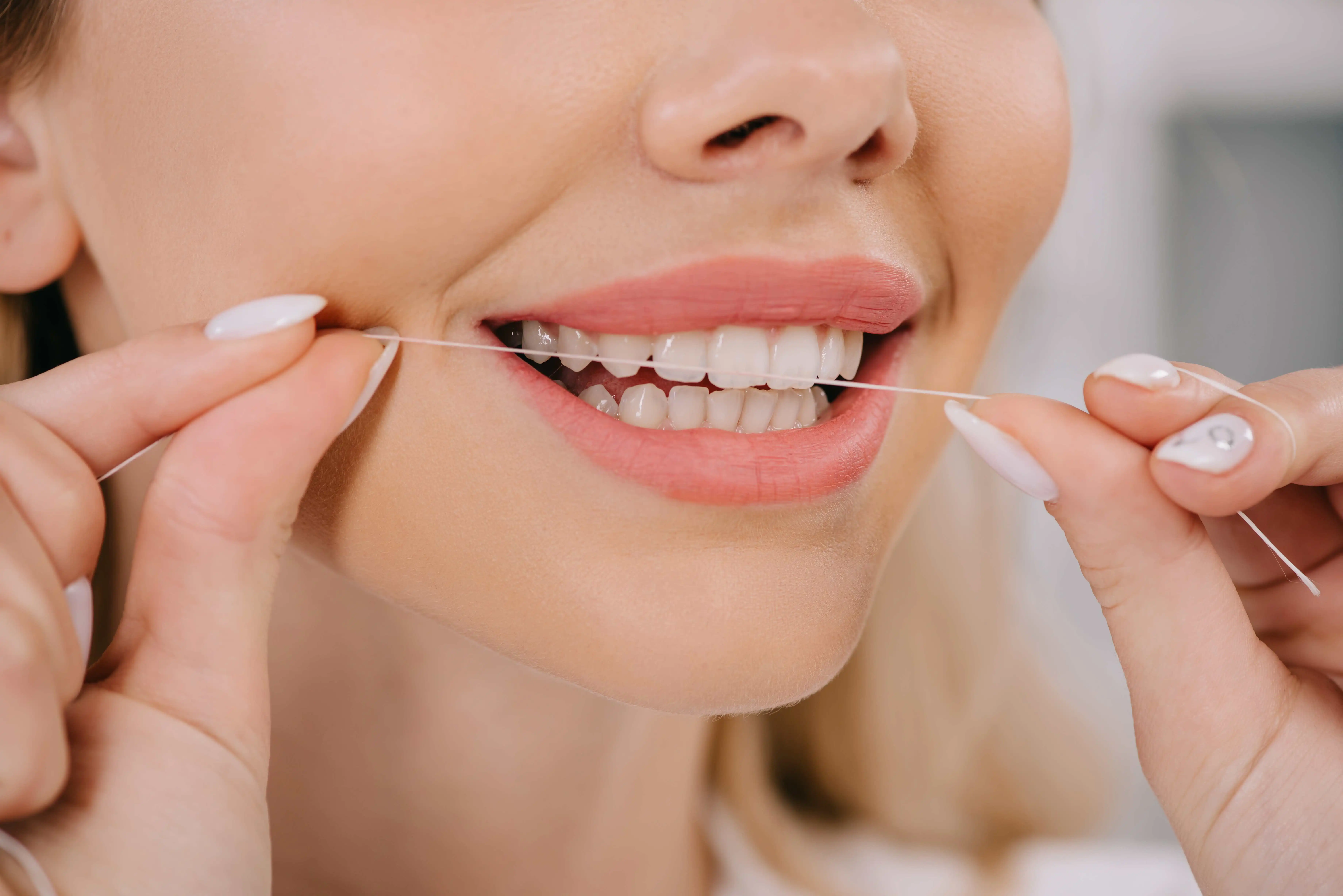
Flossing is crucial for removing food particles and plaque that accumulate between the teeth and cannot be removed by brushing alone. It is particularly important for people who have undergone implant surgery. Plaque builds up easily around implants, which is bad for oral health.
It’s essential to switch to an implant-friendly floss. Flossing daily with unwaxed tape or another implant-specific floss is a must for you.
-
Practice good oral hygiene.

After getting dental implants, you should continue to brush twice a day. Also, remember to use non-abrasive products to protect your dental implants.
You should avoid bleach, baking soda, and chlorine cleansers because they can weaken or even permanently damage your implants.
We also recommend saying no to any intensely flavored oral hygiene products (think mint or cinnamon) because these can cause discomfort.
-
Avoid hard, hot, or sticky foods.

You should avoid hard food, which can damage or break your dental implants. Stay away from sticky foods because they can adhere to your implants and promote plaque buildup.
You should avoid the following: hardshell tacos, hard candies, ice, carrots, potato chips, apples, dried fruits, crusty bread, caramel, and steak.
Additionally, hot water (or hot food products like soups) can distort your implants’ shape.
-
Limit alcohol consumption

Alcohol is very problematic for your dental implants. It contains high sugar, promoting tooth decay in normal teeth. Alcohol slows the healing process of post-dental implant surgery and speeds up plaque accumulation.
If you want to make your implants last longer, you need to avoid alcohol consumption for at least six months after your implant surgery.
-
Quit smoking

Smoking is incredibly harmful to your oral health. Smoking puts you at high risk of developing health issues like tooth decay and cancer. In the case of dental implants, smoking slows down the healing process and inflames and weakens the gums around the implant. Smoking might cause staining issues with your new implants.
-
Visit your dentist regularly

Visiting your dentist is essential to the health of your mouth. You should see your dentist at least twice a year to control plaque and tartar buildup. It boosts the chances of catching developing issues early.
After having dental implants, these appointments are also an opportunity to confirm that everything is functioning properly. The dentist will check your implants to check the healing and overall well-being of the implants.
-
Get a mouthguard for teeth grinding
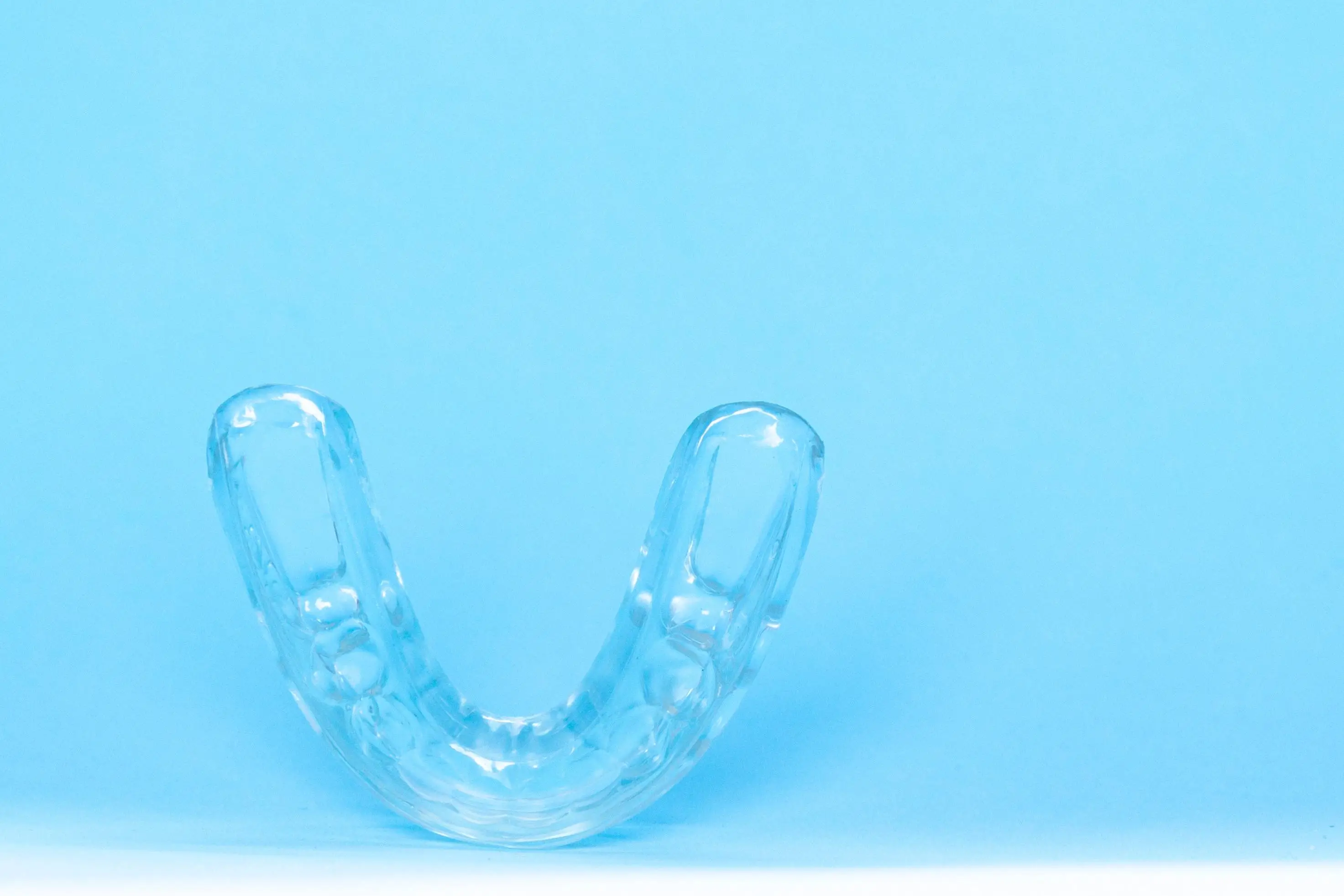
Teeth grinding (also known as Bruxism) can damage your regular teeth and dental implants permanently. The excessive grinding force puts intense pressure on your implants, which can have a lasting impact. If you’re diagnosed with bruxism, opt for a custom mouthguard to protect your teeth.
How long your implants last depends upon how you do dental implant care. It could be a few years or the rest of your life; implants are meant to be a permanent solution!
By following the steps of dental implant care, you are doing your part to keep the implants healthy.
For Expert Dental Implant Care, Contact Osseo Family Dental!
If you’re looking for an implant dentist in Osseo, then you should visit us at Osseo Family Dental! We’ve got a well-known and trusted dental team known throughout the community for our friendly approach to dentistry. You can schedule your appointment by calling us at 7634252626 or emailing us @info@osseofamilydental.com.

